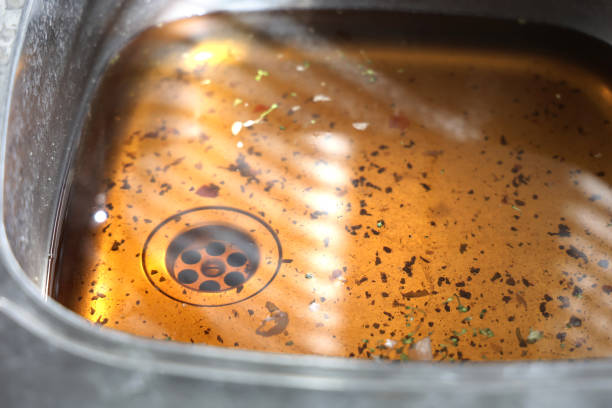A clogged kitchen sink is a common household problem that can be frustrating and time-consuming to deal with. There are several reasons why a kitchen sink can become clogged, and understanding these causes can help prevent future blockages. In this article, we’ll discuss the five most common causes of kitchen sink clogs and how to fix them.
- Food Waste
Food waste is the most common cause of kitchen sink clogs. When small bits of food, coffee grounds, and grease go down the drain, they can accumulate and create a blockage. To fix this problem, start by running hot water down the drain for a few minutes to help dissolve any grease or oil that may have built up. Then, use a plunger to try and dislodge the clog. If that doesn’t work, try using a plumbing snake to break up the blockage.
To prevent food waste from causing future clogs, use a sink strainer to catch any leftover food scraps and empty it into the garbage.
- Soap Scum and Hair
Soap scum and hair can also contribute to kitchen sink clogs, especially in homes with long hair or a lot of soap use. To fix this problem, start by pouring boiling water down the drain to loosen any soap or hair buildup. Then, use a plunger to try and remove the blockage. If the clog persists, try using a plumbing snake to break it up.
To prevent this type of clog, consider using a hair catcher in the sink to catch any loose hairs before they go down the drain. Also, try using a liquid soap instead of bar soap to help reduce soap scum buildup.
- Mineral Buildup
Hard water can cause mineral buildup in your pipes over time, leading to a clog. To fix this problem, try pouring vinegar down the drain and letting it sit for a few minutes to break up the mineral buildup. Then, run hot water down the drain to flush it out. If the clog persists, try using a plumbing snake to break it up.
To prevent mineral buildup, consider installing a water softener in your home to reduce the amount of mineral deposits in your pipes.
- Grease and Oil
Grease and oil should never be poured down the drain, as they can solidify and cause a blockage. To fix this problem, start by running hot water down the drain to help dissolve any grease or oil buildup. Then, use a plunger to try and remove the clog. If that doesn’t work, try using a plumbing snake to break up the blockage.
To prevent grease and oil from causing future clogs, pour them into a container and throw them in the trash instead of down the drain.
- Foreign Objects
Foreign objects, such as utensils, toys, and jewelry, can accidentally fall down the kitchen sink and cause a blockage. To fix this problem, try using a plunger to dislodge the object or a plumbing snake to retrieve it. If that doesn’t work, you may need to call a professional plumber to remove the object.
To prevent foreign objects from causing clogs, be careful when washing dishes and avoid placing anything near the sink that could accidentally fall in.
clogged kitchen sink can be a frustrating problem, but it’s usually easy to fix with the right tools and techniques. By understanding the common causes of kitchen sink clogs and how to prevent them, you can keep your sink flowing smoothly and avoid future plumbing problems.

